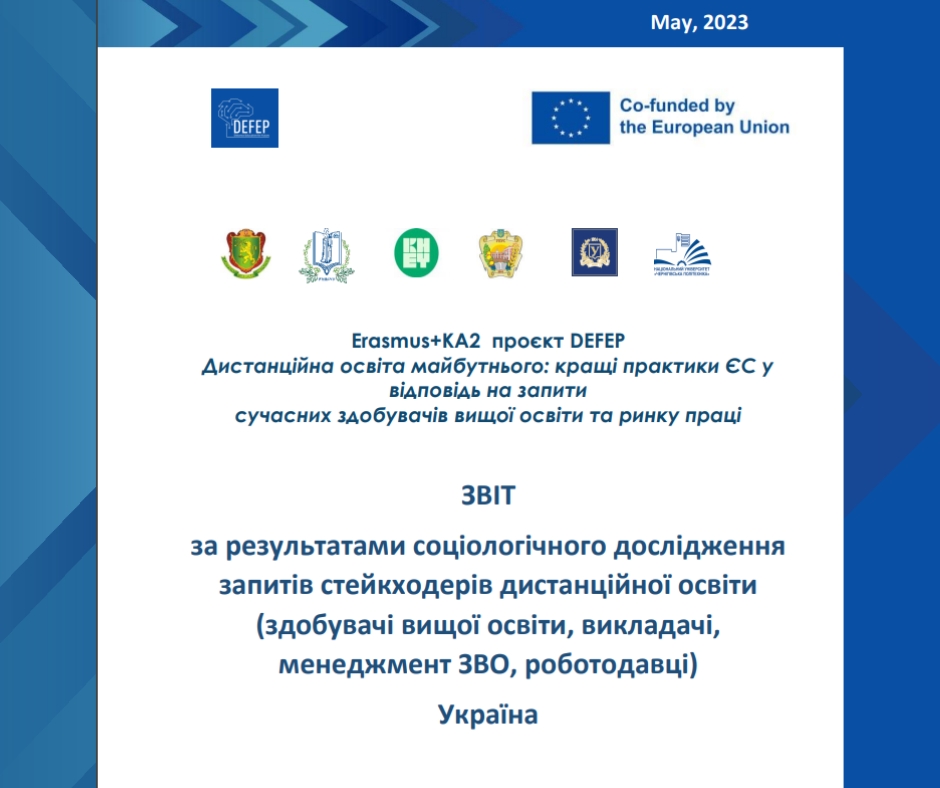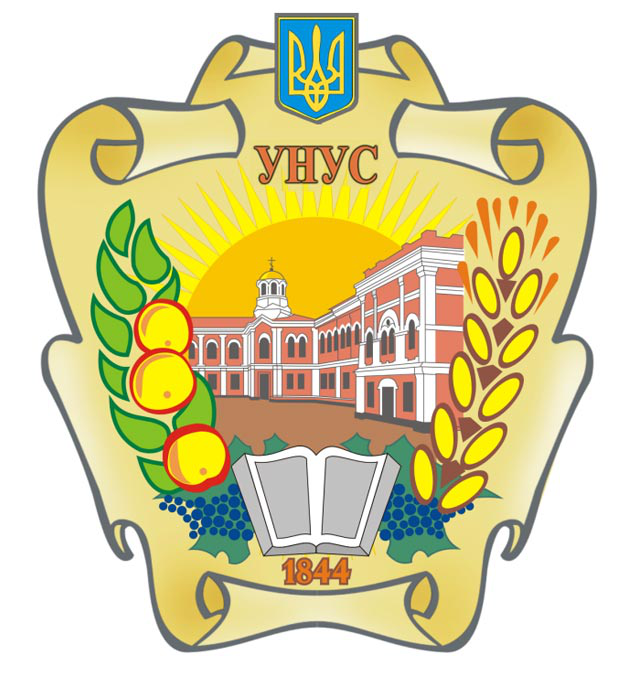

Results of a sociological study within the framework of the international ERASMUS KA2 project – DEFEP
The team of the Erasmus+ KA2 DEFEP project “Distance Education of the Future: EU best practices in response to the needs of modern higher education students and the labor market” conducted a sociological study to describe the priorities, needs and demands of stakeholders in distance education as a potentially separate form of education. The survey was conducted by a formalized online questionnaire from May 1 to May 10, 2023.
The general population of the study included students, research and teaching staff, managers and affiliated employers of higher education institutions:
- Uman National University of Horticulture;
- Petro Mohyla Black Sea National University;
- Kyiv National Economic University named after Vadym Hetman;
- Lviv National University of Environmental Management;
- National University “Chernihiv Polytechnic”;
- V. N. Karazin Kharkiv National University.
The study found that stakeholders are generally ready to implement distance education as a separate form, but their readiness is not uniform. Thus, students are quite optimistic about distance education, focusing on its practicality and comfort, but realizing its lower quality; managers and academic staff also see the problem of lower quality of knowledge and skills acquired in the distance format, and emphasize a number of problems characteristic of it (organizational, technical, psychological, etc.), although they understand the feasibility and rationality of this format, and therefore are ready to implement it; employers at the personal level prefer the traditional format, but at the institutional level are ready for the massification of distance education and are interested in participating in its improvement.

Although there is a strong differentiation in attitudes toward the distance format among representatives of different fields of education, different HEIs, etc., for the bulk of stakeholders, distance education has already become a habit that they are ready to formalize.
The report on the results of the sociological survey of distance education stakeholders’ requests (higher education students, teachers, university management, employers) in Ukraine is available for viewing on the official project website.


